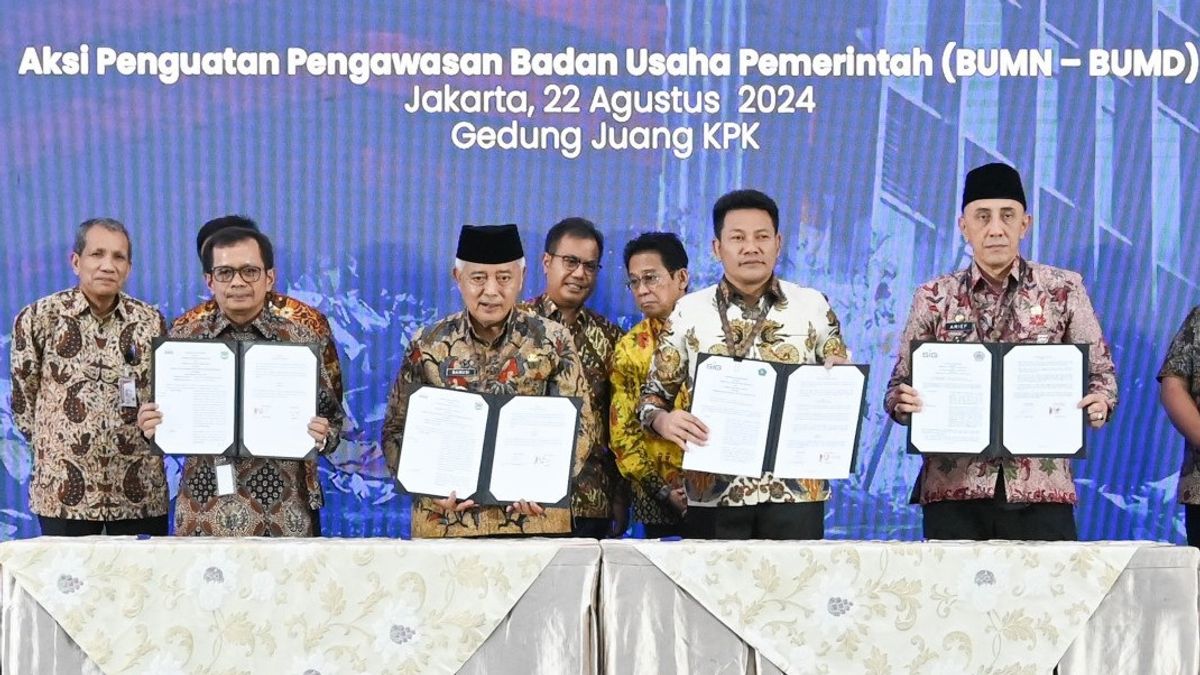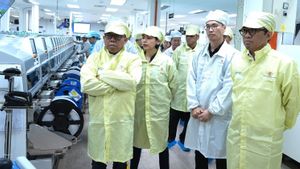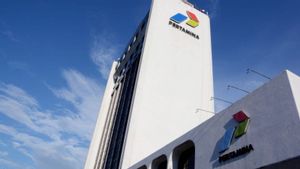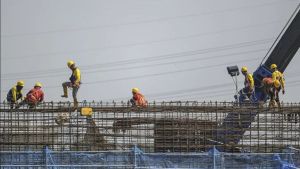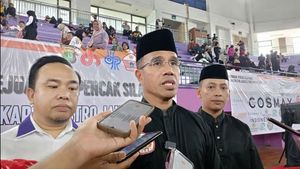JAKARTA - PT Semen Indonesia (Persero) Tbk (SIG) is committed to implementing good governance (GCG) in cooperation in waste management into energy. This is in line with the initiative of the National Stranas PK Team (National Strategy for Corruption Prevention) in encouraging clean and transparent cooperation between government enterprises, BUMN and BUMD, as well as local governments in the mining and waste management sector.
An initiative aimed at increasing supervision and prevention of corruption, as well as strengthening the capacity of SOEs and BUMDs to contribute to sustainable economic growth at the national and regional levels, is realized through the signing of the BUMN and BUMD Cooperation Agreements in the Mining and Waste Management Sector which will be held at the KPK Juang Building, Jakarta, on Thursday 22 August.
As a state-owned company providing building materials solutions that has capabilities and experience in managing urban waste and waste, SIG together with the Malang Regency Government (Pemkab), Sidoarjo Regency Government, and Bangkalan Regency Government, signed a Joint Agreement in Waste Management to be used as alternative fuel or refuse-derived fuel (RDF) in cement production at the SIG and SBI Tuban Factories, East Java, as well as the PT Semen Gresik Factory in Rembang, Central Java.
A subsidiary of GIS, PT Solusi Bangun Indonesia Tbk (SBI) and PT Semen Tonasa, also demonstrated their commitment to assisting local governments in overcoming waste problems. SBI signed a Joint Agreement in Waste Management with the Aceh Provincial Government and the Purwakarta Regency Government. Meanwhile, PT Semen Tonasa signed a Cooperation Agreement in Waste Management with the Pangkep Regency Government.
The head of the Indonesian Corruption Eradication Commission (KPK), Johanis Tanak, said that the KPK has the main task of eradicating corruption in which prevention aspects are included. To maintain the effectiveness and efficiency of the use of government budgets, both central and regional, in relation to waste management, the KPK as the coordinator of the National Stranas PK National Team has made a special study on how to make the best use of waste that can bring benefits to the nation and state.
"In the implementation of waste management which will use either funds from the central government through BUMN or local governments through BUMD, we will oversee this so that later there will be no disgraceful action to utilize these funds for personal or group interests that will cause state losses. This is what we will oversee later. Within every 3 months we will conduct an evaluation. Whether these activities have actually been carried out according to applicable regulations and no state losses have occurred, especially those related to corruption, "said Johanis Tanak.
Secretary of the Ministry of SOEs, Rabin Indrajad Hattari, appreciated the National Stranas PK Team for facilitating cooperation agreements between BUMN, BUMD and local governments. Through the support of the KPK, this collaboration is expected to be carried out in the corridor of good corporate governance and accountability.
BUMN and BUMD play a crucial role in national development in Indonesia. Not only functions as a business entity, but also as an agent for Indonesia's development, to encourage more prosperous economic growth for all Indonesian people. BUMN and BUMD stand not as competitors, but we are strategic partners who work hand in hand to realize Indonesia's vision of progress," said Rabin Indrajad Hattari.
GIS President Director, Donny Arsal said, GIS has used RDF as a coal substitution resulting from the RDF Plant Jeruklegi facility belonging to the Cilacap Regency Government since 2020. Not only as a user, SIG through its subsidiary, SBI, is also the initiator and operator of the first RDF facility in Indonesia which was inaugurated by the Coordinating Minister for Maritime Affairs and Investment, Luhut Binsar Pandjaitan on July 21, 2020.
SEE ALSO:
Currently, the GIS facility can absorb RDFs of more than 460 thousand tons per year or the equivalent of waste volume of more than 1 million tons per year. With future development, the GIS facility is projected to absorb RDFs of more than 770 thousand tons per year or the equivalent of waste volume of more than 1.6 million tons per year.
"In addition to reducing dependence on fossil energy sources and achieving the decarbonization target, the use of RDF is also a solution that we can provide to support local government efforts in overcoming waste problems, and creating a healthy environment for the community," said Donny Arsal, in his statement, Friday, August 23.
SIG's commitment to environmental conservation efforts is getting stronger with the support of environmentally friendly waste management facilities called Nathabib. Natabumi provides industrial waste management services for both B3 and Non-B3, urban waste management, analysis and waste laboratories, to drilling waste management.
Nathabumi's waste and waste management system is carried out through the co-processing method by utilizing the high temperature of cement which reaches 1,500 degrees Celsius, so there are no residues left.
The English, Chinese, Japanese, Arabic, and French versions are automatically generated by the AI. So there may still be inaccuracies in translating, please always see Indonesian as our main language. (system supported by DigitalSiber.id)
